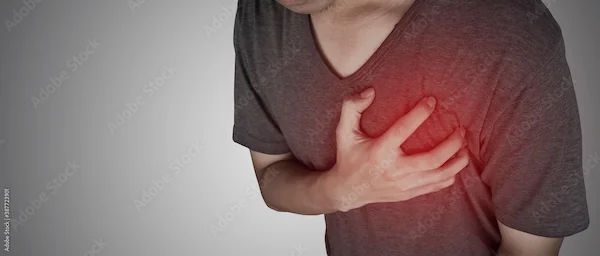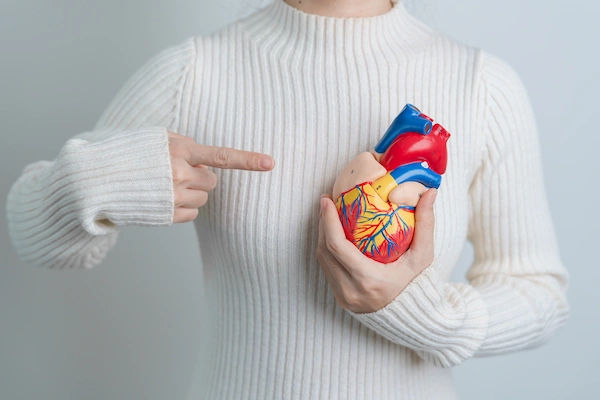- male
- 45 Years
- 29/01/2025
I'm curious about why my blood pressure spikes to 180100 during times of aggression, while it's usually around 11080 or 12080 when I'm calm. I don't have diabetes or thyroid issues, and my echo, ECG, and TMT results are normal. My lipid profile shows LDL at 60, HDL at 37, and total cholesterol at 110. Is there any underlying pathological condition that could be causing these blood pressure fluctuations?
Answered by 1 Apollo Doctors
Aggression or stress can indeed cause a temporary spike in blood pressure. Since your heart tests and lipid profile are normal, the elevated blood pressure may be due to situational factors. However, it is important to monitor your blood pressure regularly and consider lifestyle modifications. In case of persistent high blood pressure, your doctor may prescribe medications like Amlodipine 5mg or Losartan 50mg to help keep it under control.
Dr. Chandra Suggests...
Consult a Cardiologist
Answered 04/07/2025
0
0

More Cardiology Health Queries
View allI'm really confused about my recent echo results. Two months ago, it showed mild tricuspid valve regurgitation, and after making some lifestyle changes and a follow-up echo, it's now showing trivial regurgitation and valve thickening. I'm not sure what these changes mean or what I should do next. Can you help me understand what's going on and what steps I should take to address this? I've included my report if that helps.
Based on the information provided, it seems like there has been an improvement in the tricuspid valve regurgitation from mild to trivial, which is a good sign. To address the trivial regurgitation and valve thickening, I recommend continuing with your healthy lifestyle changes and following up with your healthcare provider for further evaluation and management. In terms of medication, you can consider taking a diuretic like Lasix (furosemide) to help reduce any fluid buildup and ease the workload on the heart. Additionally, an ACE inhibitor like Lisinopril can help reduce blood pressure and lessen the strain on the heart. It's important to have regular follow-up appointments with your doctor to monitor any changes in your condition and adjust your treatment plan accordingly. If you have any symptoms such as shortness of breath, chest pain, or swelling, please seek medical attention promptly. Remember, lifestyle modifications, medication adherence, and regular medical follow-ups are key in managing heart conditions.
Answered by 1 Apollo Doctors
I'm a 28-year-old male and I've noticed that for the past 6 months, my resting heart rate has consistently been over 100, sometimes getting up to 120. I'm really wondering if this is something normal or if I should be concerned about it. Is this something I need to get checked out?
Vist Physician and get your Thyroid Profile done,and plan accordingly
Answered by 1 Apollo Doctors
I'm really worried about this ongoing lightheadedness I've been dealing with for the past 8 months. It's like I'm under the influence of something, almost like alcohol, but I'm not. I've had these scary episodes where my chest hurts and my blood pressure shoots up to 150100. The ER told me it was a panic attack, and it's happened twice now. I've undergone so many testsHolter Monitor, ECG, EKG, chest and heart CT scans, even a brain MRI and countless blood tests. Everything comes back normal, including checks for anemia and thyroid issues. They did find H. Pylori, and I finished a 14-day antibiotic course for that, but otherwise, doctors say I'm fine. Yet, I can't shake these feelings and symptoms. I'm 30, 6 feet tall, and weigh 90 kg, with blood pressure often around 13590. I've even had ECGs during the pain episodes. Can you help me figure out what might be going on here?
It sounds like you have been through a thorough evaluation for your symptoms. Since all your reports have come back normal and your doctors have ruled out various possible causes, including panic attacks, it's important to consider other factors that may be contributing to your lightheadedness and other symptoms. One possible cause could be inner ear problems leading to vertigo-like symptoms. I recommend trying a medication called Meclizine (brand name Antivert) at a dose of 25-100 mg per day to help with your lightheadedness. Additionally, you may benefit from vestibular rehabilitation therapy to address any inner ear issues. It's also important to stay well-hydrated, maintain a healthy diet, and practice stress-reducing activities such as yoga or meditation. If your symptoms persist or worsen, it may be helpful to see an Ear, Nose, and Throat (ENT) specialist for further evaluation and management.
Answered by 1 Apollo Doctors
Disclaimer: Answers on Apollo 247 are not intended to replace your doctor advice. Always seek help of a professional doctor in case of an medical emergency or ailment.





